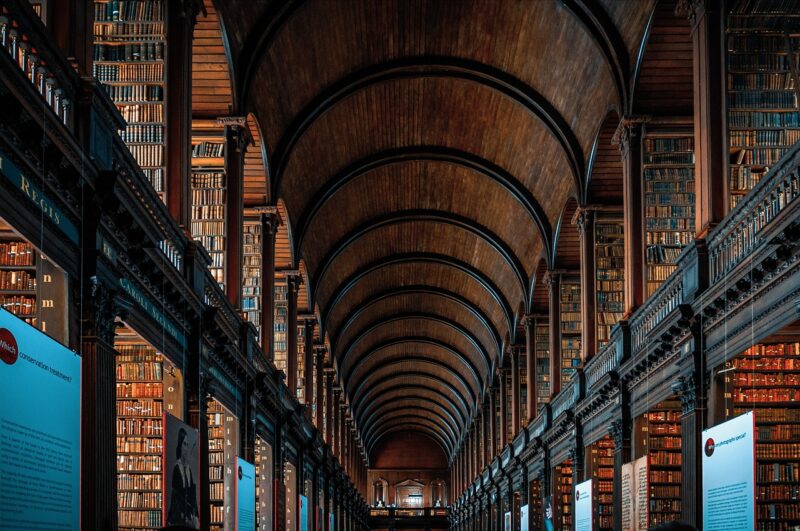The World’s Most Inspiring Libraries and the Knowledge They Preserve
November 16, 2024

Libraries are not just repositories of books; they are sanctuaries of knowledge, culture, and community. Throughout history, libraries have played a pivotal role in safeguarding human thought and creativity. From ancient scrolls to digital archives, these institutions have evolved while retaining their core mission: to provide access to information for everyone. In this article, we will explore some of the world’s most inspiring libraries, the unique collections they preserve, and the role they play in shaping our understanding of history and culture.
1. The Library of Alexandria: A Lost Wonder
The ancient Library of Alexandria in Egypt is perhaps the most famous library in history. Founded in the 3rd century BCE, it was reputed to hold hundreds of thousands of scrolls containing the collective knowledge of the ancient world. Scholars flocked to this center of learning, which symbolized the pursuit of knowledge and enlightenment. Although it was tragically destroyed, the Library of Alexandria has left an indelible mark on the cultural psyche.
– What Did It Hold?
The library held works from various civilizations, including philosophies, mathematics, astronomy, and poetry. It was a melting pot of ideas that contributed significantly to the development of human knowledge. The burning of the library represents a devastating loss of cultural heritage, reminding us of the fragility of knowledge.
2. The British Library: A Treasure Trove
Located in London, the British Library is one of the largest libraries in the world, with millions of items covering a wide array of subjects including manuscripts, newspapers, and maps.
– Notable Collections:
Some of its most noteworthy holdings include:
– The Magna Carta, a cornerstone of democratic principles.
– Original manuscripts from authors such as William Shakespeare and Jane Austen.
– An extensive collection of sound recordings, including oral histories that preserve the narratives of ordinary citizens.
This variety demonstrates the British Library’s commitment to preserving both literature and the voices of history.
3. The New York Public Library: A Community Hub
The New York Public Library, with its iconic lions guarding the entrance, is not only a center for book lending but also a venue for cultural events, exhibitions, and educational programs. It houses over 50 million items, making it one of the largest public libraries in the United States.
– Cultural Impact:
The library plays a central role in the cultural life of New York City, offering resources and programs to people from all walks of life. It serves as a meeting ground for intellect and creativity, often organizing lectures and readings by prominent authors and thinkers.
4. The Bibliothèque nationale de France: A French Legacy
The Bibliothèque nationale de France (BNF) is one of the oldest libraries still in operation. Established in the 14th century, it houses extensive collections that reflect the history and culture of France and beyond.
– Unique Features:
The BNF is home to rare manuscripts, maps, and artworks, including works by famous French artists. Access to these collections helps preserve the legacy of French culture, making it an essential institution for researchers and historians worldwide.
5. The Library of Congress: A Symbol of Democracy
As the largest library in the world, the Library of Congress in Washington, D.C., holds over 170 million items, including books, recordings, photographs, maps, and manuscripts. Established in 1800, it serves Congress and the public, aiming to provide access to knowledge and the means for informed civic engagement.
– Special Collections:
Highlights include:
– The Thomas Jefferson Collection, showcasing early American works.
– The American Folklife Center, preserving cultural traditions.
– An extensive variety of materials related to the history of cinema, music, and the arts.
The Library of Congress embodies the spirit of democracy and the pursuit of universal knowledge.
6. The National Library of China: Preserving History in Asia
The National Library of China in Beijing is Asia’s largest library and is committed to preserving Chinese literature and historical documents. It boasts a vast collection of over 37 million items, including rare books, manuscripts, and maps.
– Cultural Preservation:
As a focal point for the preservation of Chinese history, it holds invaluable cultural artifacts that reflect the country’s rich heritage. The library plays a crucial role in ensuring that future generations can access and learn from this history.
7. The Royal Library of Belgium: A Modern Marvel
The Royal Library of Belgium, known as the KBR, is a fusion of historical importance and modernity. Housing significant collections of manuscripts, prints, and maps, it stands as a beacon of culture and learning in Europe.
– Digital Innovation:
The KBR has embraced the digital age by providing extensive online access to its collections, allowing people worldwide to explore Belgian and European heritage with ease. This evolution demonstrates how libraries are adapting to meet the needs of contemporary users while preserving traditional knowledge.
Conclusion: More than Just Books
Libraries are more than just storage spaces for books; they are dynamic centers of learning, culture, and community engagement. From ancient to modern times, these institutions have been guardians of knowledge, preserving the past while empowering the future. As we navigate an increasingly digital world, libraries continue to adapt and thrive, serving as vital resources for all. By visiting and utilizing the incredible resources these libraries provide, we not only honor our past but also invest in the future of knowledge and culture.
As we reflect on the inspiring libraries around the world, let us appreciate the knowledge they safeguard for generations to come. Libraries offer not just books, but a gateway to understanding the human experience, making them indispensable in our quest for enlightenment and growth.







